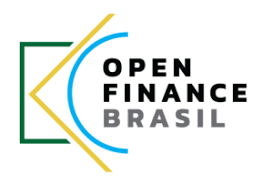Open finance, a framework that allows for financial data sharing among institutions, is growing fast in Brazil, with progress in regulation paving the way for new opportunities for local fintechs.
In early 2021, the Central Bank of Brazil initiated a two-year process to implement open finance, a concept that already exists in Europe and a handful of other countries worldwide. It has the overarching goal of fostering competition, lowering interest rates, and bringing more people into the system.
The country is a leading case in Latin America in terms of innovative financial regulation. The framework — a concept broader than open banking that includes insurance, payments, and investments — is now fully operational in Brazil. In Latin America, Mexico has also implemented it (although further regulation is due), while other countries such as Chile and Colombia are moving in that direction.
In Brazil, the first results encourage many in the fintech industry. Since its inception, there have been 6.7 billion client consents in Brazil for data sharing, according to information by Open Banking Brazil. Also, more than 800 different institutions are already active in the collaborative framework.
Room for growth
Open banking can include 4.6 million more people in the system and create 94 billion Brazilian reais ($20 billion) in retail loans until 2026, a recent market intelligence firm Serasa Experian showed. Over the next decade, that potential grows to 760 billion ($150 billion) of new credit into the economy, or roughly 15% of Brazil’s one trillion loan market.
 “It is a huge potential for the financial market as a whole,” Paulo Oliveira Andreoli, a fintech adviser in Brazil, said. “Open Finance is getting started, and in the next few years, we will see many innovative products built on its infrastructure. Some of them we can’t even imagine today. It’s like with the internet…”
“It is a huge potential for the financial market as a whole,” Paulo Oliveira Andreoli, a fintech adviser in Brazil, said. “Open Finance is getting started, and in the next few years, we will see many innovative products built on its infrastructure. Some of them we can’t even imagine today. It’s like with the internet…”
Last year, banks and fintechs adjusted systems to implement the framework. As of now, many of them are actively exploring opportunities to create new services. Banco do Brasil, for instance, one of the largest banks in the country, launched a so-called “financial planning” development, in which a client can group all of their bank accounts in a single place.
To be sure, open finance is still not widely known in Brazil. Many customers are unfamiliar with such possibilities. But by setting its foundations, the central bank intends to achieve a longer-term goal of lowering bank rates. In Brazil, the price of a personal loan in the country can quickly go above 100% per year, one of the highest in the world.
More complete assessment
With open finance, borrowers can now share statements and credit information with a bank different from its own when requesting a loan. This way, the new institution analyzing could have a complete view of a client’s entire financial record. Hence, the expectation is that it will be able to run a more complete assessment and offer credit with lower risk and, consequently, lower rates.
“People will be able to choose the financial institution that offers the best conditions without worrying about losing their track record,” Andreoli said. “They will be able to take all their information with them wherever they go.”
In mortgage credit, the impact could be significant. The survey by Serasa showed that that kind of financing benefits the most right away. According to the study, shared bank data increases the probability of consumers securing access to real estate credit.
The rise of fintech has contributed to reducing banking concentration in the country. But despite progress in recent years, a handful of five traditional banks in Brazil continue to govern a majority of loan assets in the system.
Blaze a trail in loan market
Open finance could be an opportunity for traditional banks to develop new products and cross-sell. For neobanks and digital-born companies, it could help them blaze a trail in the loan market and create a significant avenue for revenue and profitability.
 “Credit in Brazil is still very concentrated,” Glauber Mota, CEO of Revolut Brasil, told Fintech Nexus. He is confident that progress in open banking will make loans more widely accessible to segments of the population that are underserved today.
“Credit in Brazil is still very concentrated,” Glauber Mota, CEO of Revolut Brasil, told Fintech Nexus. He is confident that progress in open banking will make loans more widely accessible to segments of the population that are underserved today.
Drawn by regulatory progress in the Brazilian market, U.K.-based Revolut has built a team in the country and is looking to launch by the end of this year. Although its initial product will not be lending, the executive acknowledges the potential of including it in the portfolio.



























